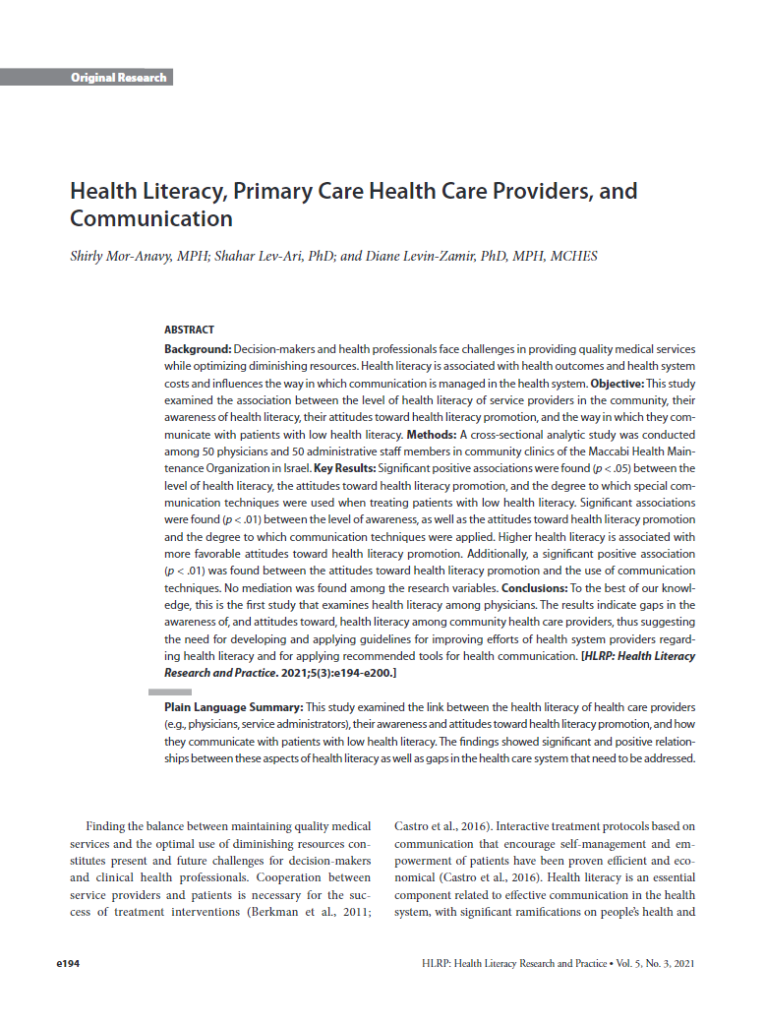Abstract
Background
Decision-makers and health professionals face challenges in providing quality medical services while optimizing diminishing resources. Health literacy is associated with health outcomes and health system costs and influences the way in which communication is managed in the health system.
Objective
This study examined the association between the level of health literacy of service providers in the community, their awareness of health literacy, their attitudes toward health literacy promotion, and the way in which they communicate with patients with low health literacy.
Methods
A cross-sectional analytic study was conducted among 50 physicians and 50 administrative staff members in community clinics of the Maccabi Health Maintenance Organization in Israel.
Key results
Significant positive associations were found (p < .05) between the level of health literacy, the attitudes toward health literacy promotion, and the degree to which special communication techniques were used when treating patients with low health literacy. Significant associations were found (p < .01) between the level of awareness, as well as the attitudes toward health literacy promotion and the degree to which communication techniques were applied. Higher health literacy is associated with more favorable attitudes toward health literacy promotion. Additionally, a significant positive association (p < .01) was found between the attitudes toward health literacy promotion and the use of communication techniques. No mediation was found among the research variables.
Conclusion
To the best of our knowledge, this is the first study that examines health literacy among physicians. The results indicate gaps in the awareness of, and attitudes toward, health literacy among community health care providers, thus suggesting the need for developing and applying guidelines for improving efforts of health system providers regarding health literacy and for applying recommended tools for health communication.
